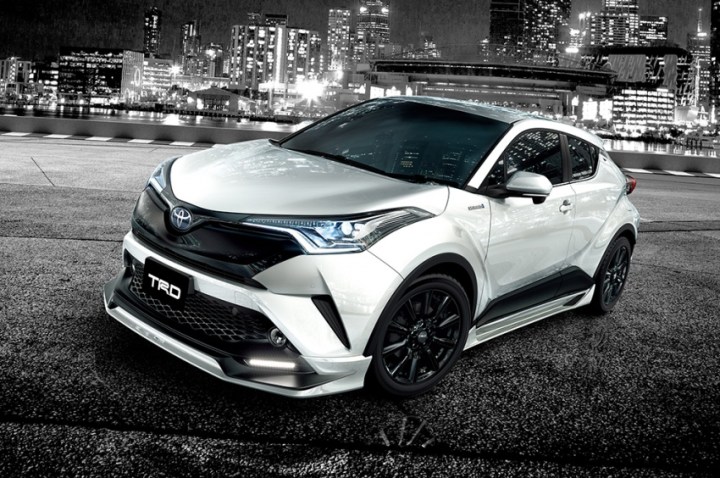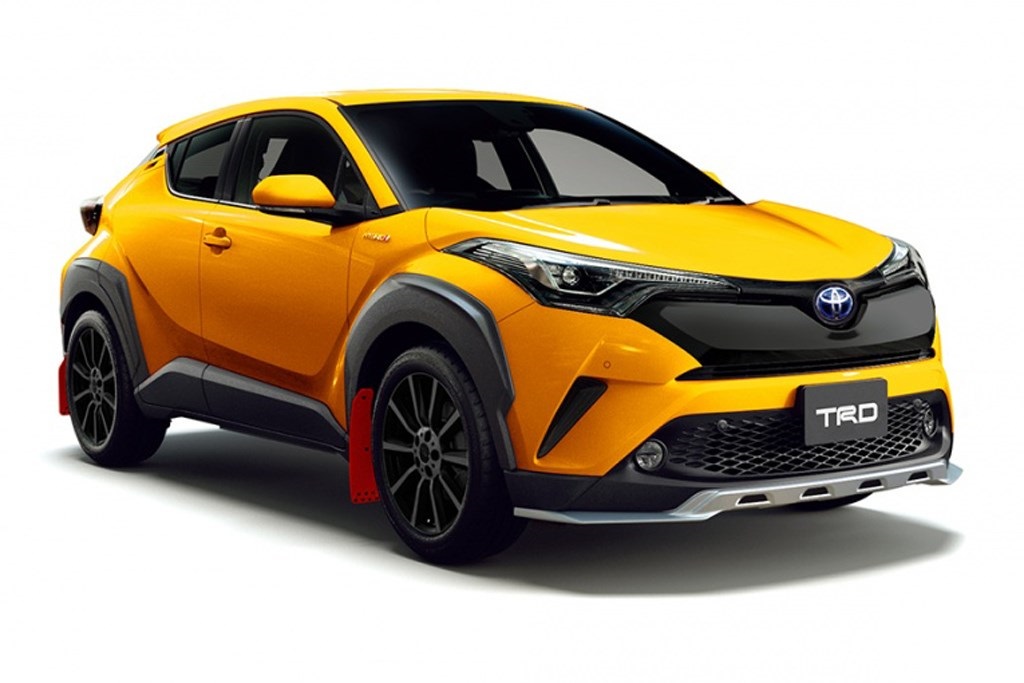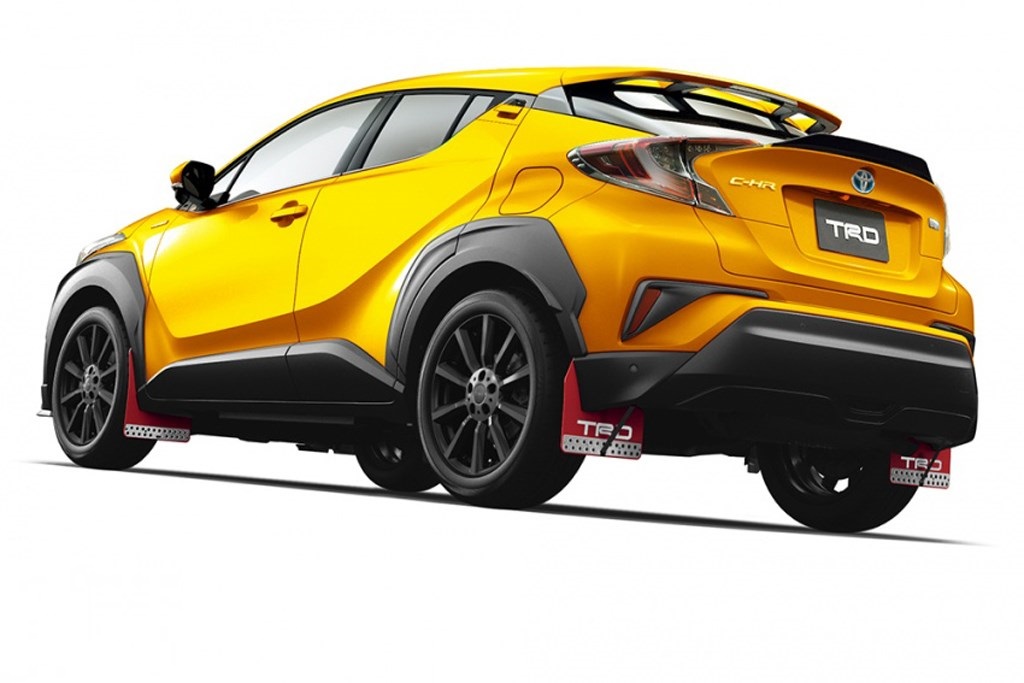
The body kits were developed by Toyota Racing Development (TRD), the same division responsible for the off-road-ready variants of the Tacoma, Tundra, and 4Runner. The first kit pays homage to Toyota’s past and future rally efforts with a deep front bumper accented by a wide air dam, black plastic cladding over the wheel arches and the rocker panels, a roof-mounted spoiler, and red mud flaps. The second kit adds bumper and rocker panel extensions to create a look that would fit right in at a tuner show.
Unfortunately, the TRD treatment doesn’t extend to the engine bay — at least not yet. In the United States, the C-HR is exclusively offered with a 2.0-liter four-cylinder engine rated at 144 horsepower and 140 pound-feet of torque. It spins the front wheels via an all-new continuously variable transmission. The soft-roader is hardly a sports car, but Toyota executives are working on a plan to change that.
An earlier report finds the brand is debating whether to launch a faster, more powerful version of the C-HR to fight head-to-head against the Nissan Juke Nismo. If approved for production, the yet-unnamed model would draw inspiration from the race-prepped variant that tackled Germany’s grueling Nürburgring track last spring.
“The car lends itself to [a sports version]. It would be possible, but it depends on how much we have to change. A sports version could be a minor change or it could be a new project,” explained Rembert Serrus, a Toyota senior manager, in a recent interview with British magazine Autocar.
Toyota hasn’t revealed if the aforementioned body kits will be available in the United States when the C-HR arrives in showrooms.
Editors' Recommendations
- NASA’s experimental electric plane takes ‘major step’ toward first flight
- Toyota announces site for its first U.S. battery plant
- SpaceX takes big step toward Super Heavy’s first orbital flight
- Smarter and sharper-looking, the Toyota C-HR now plays nice with Android phones
- Toyota uses hydrogen fuel cells to power one of its Japanese factories





